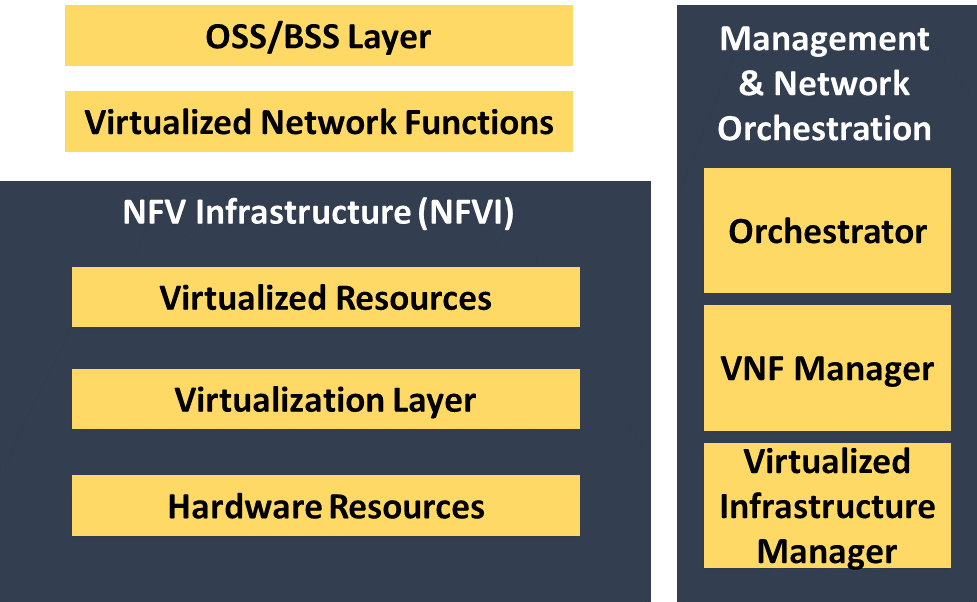By Rupal Shirpurkar, Alibaba Cloud MVP and Business Head (Cloud BU - APAC) Click2Cloud Inc.
Many cloud service providers simply providing network connectivity for their enterprise customers. They also offer additional services & network functions like network address translation (NAT), firewalls, encryption, domain name service (DNS), caching and others. Traditionally, these network functions will deploy using proprietary hardware at the customer premises. This approach provides additional revenue. But deploying multiple proprietary devices is costly and makes upgrades difficult.
Service providers began exploring ways to reduce cost and accelerate deployment through Network Functions Virtualization/Virtual Private Cloud. Alibaba VPC de-couples' function like firewalls, encryption from dedicated hardware and moves the functions to virtual servers.
Instead of installing expensive proprietary hardware, service providers can purchase an inexpensive switches, storage and servers to run virtual machines that perform network functions. If a customer wants to add a new network function, the service providers can spin-up a new virtual machine to perform out function.
The high level Network Functions Virtualization/Virtual Private Cloud architecture allows service providers to automate at every single level. The major components of this framework include:

Fig: High Level NFV/VPC Framework
1. VPC Infrastructure: (VPC/NFV)
It is a kind of Alibaba cloud data center containing hardware and virtual resources that build-up the NFV environment. These includes servers, switches, virtual machines and virtual switches.
a) Hardware Resources:
These includes computing resources such as servers, RAM. Storage resources such as disk storage and network resources such as switches, firewalls and routers.
b) Virtualization Layer:
The virtualization layer abstracts the hardware resources and de-couples' the software from the hardware. This enables the software to progress independently from the hardware. For the virtualization layer we can use multiple open source and proprietary options such as KVM, QEMU, VMware and OpenStack.
c) Virtualized Resources:
These includes virtual compute, virtual storage and virtual network. These virtualized resources of Alibaba NFV/VPC help in cost and time savings. It offers a storage platform with backup and recovery option.
2. Virtualized Network Functions:
This is the second layer of NFV/VPC. The VNFs are the basic building block in the NFV architecture, the software implementation of the network functions. VNFs can be connected as building blocks to offer a full-scale network service. This is known as service chaining. Examples of VNFs includes VIMS, vFirewalls and vRouters.
3. Management & Network Orchestration:
This is the third component of NFV architecture. It includes virtualized infrastructure manager, VNF manager, and orchestrator.
a) Virtualized Infrastructure Manager:
It controls & manages interaction of VNF and NFVI compute, storage and network resources. It also has necessary deployment and monitoring tools for the virtualization layer.
b) VNF Manager:
VNF manager manages the lifecycle of VNF instances. It is responsible to initialize, update, query, scale and terminate VNF instances.
c) Orchestrator:
It manages the lifecycle of network services which includes instantiation, policy management, performance management and KPI monitoring.
4. OSS/BSS layer:
OSS deals with network management, fault management, configuration management, service management and element management. BSS deals with customer management, operations management, order management, billing and revenue management.
NFV/VPC provides the following benefits to network operators:
Alibaba's VPC enables dynamic provisioning of network services that support applications. With Alibaba NFV/VPC the cloud service providers grant the flexibility to move their network functions from a dedicated appliance to generic servers. With its benefits of scalability, security and cost-effectiveness, NFV/VPC is helpful to shape the cloud service provider networks.
Integration of Alibaba Cloud as a Backend in OpenSDS and Object Storage for Multi-Cloud

107 posts | 10 followers
FollowAlibaba Clouder - April 19, 2021
OpenAnolis - June 27, 2022
Rupal_Click2Cloud - December 23, 2024
Clouders - June 17, 2022
Neel_Shah - April 24, 2025
Alibaba Cloud Community - April 1, 2022

107 posts | 10 followers
Follow VPC
VPC
A virtual private cloud service that provides an isolated cloud network to operate resources in a secure environment.
Learn More Alibaba Cloud PrivateZone
Alibaba Cloud PrivateZone
Alibaba Cloud DNS PrivateZone is a Virtual Private Cloud-based (VPC) domain name system (DNS) service for Alibaba Cloud users.
Learn More Accelerated Global Networking Solution for Distance Learning
Accelerated Global Networking Solution for Distance Learning
Alibaba Cloud offers an accelerated global networking solution that makes distance learning just the same as in-class teaching.
Learn More PrivateLink
PrivateLink
Connect your VPCs to services in other VPCs through secure, reliable, and private connections.
Learn MoreMore Posts by Rupal_Click2Cloud